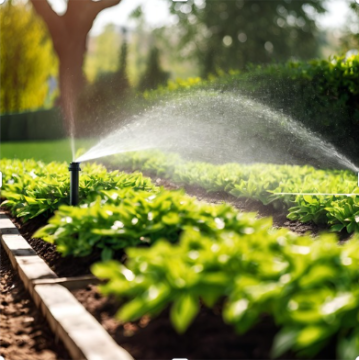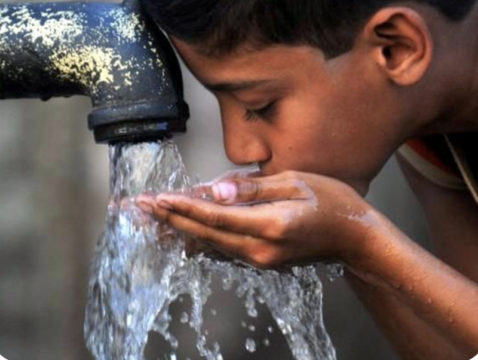
Homeowners and property managers work hard to keep their outdoor spaces looking great. Choosing the right irrigation system is key. It helps with landscape irrigation solutions, optimal lawn care, and efficient water management.
This article will cover the basics of picking the right irrigation system. We’ll look at soil types, weather, and what your landscape needs. Our goal is to help you create a beautiful, healthy outdoor space with smart watering.
Key Takeaways
- The significance of customized landscape irrigation solutions for diverse outdoor environments.
- Principles of optimal lawn care through targeted irrigation practices.
- The role of efficient water management in achieving sustainable landscapes.
- Factors influencing irrigation system selection tailored to individual landscape needs.
- The importance of combining technology with traditional practices for an effective irrigation strategy.
- How informed decision-making in irrigation can lead to water conservation and ecosystem benefits.
Understanding the Basics of Landscape Irrigation
Irrigation is key to keeping landscapes green and healthy. It makes sure plants get the right amount of water. Knowing about irrigation system types helps use water better.
Types of Irrigation Systems
Choosing the right irrigation system depends on the landscape hydration needs. There are a few main types:
- Drip Irrigation: Water goes straight to the soil, saving water and reducing waste.
- Sprinkler Systems: Great for big areas, with options like moving heads.
- Soaker Hoses: Good for tight spaces, slowly feeding water into the soil.
Benefits of Efficient Irrigation
Efficient irrigation does more than save water. It also makes plants healthier and cuts down on upkeep:
- Enhanced Plant Health: Right water helps plants grow strong and fight off diseases.
- Reduced Water Bills: It uses water wisely, saving money.
- Eco-Friendly: It reduces runoff, keeping water clean in streams and rivers.
Determining Water Requirements for Your Landscape
To figure out how much water your landscape needs, look at a few things:
- Plant Species: Each plant needs different amounts of water.
- Climate Conditions: Weather and rain affect how often you need to water.
- Soil Type: Some soils hold water better than others, changing how often you water.
Using the right irrigation for your landscape ensures water is used well. This creates a lush, green space that’s good for the planet.
The Role of Soil Type in Irrigation Selection
It’s key to know how soil type and irrigation method work together for a healthy landscape. By looking at soil types and irrigation, we can help our landscapes grow well without wasting water.
Analyzing Soil Composition
Soil’s makeup impacts how water moves and stays in the soil. This affects irrigation system efficiency. For example, clay soils hold water well but absorb it slowly. Sand soils drain fast but hold little water.
Knowing these traits helps pick the right irrigation method. This ensures plants get enough water without getting too wet.
Matching Irrigation Methods to Soil Permeability
Soil’s ability to let water pass through is crucial for irrigation choice. For low-permeability soils, drip irrigation works well. It waters plants slowly, letting the soil absorb it.
For soils that drain fast, sprinkler systems are better. They cover more area and can quickly replace lost water.
- Irrigation efficiency depends on matching system capabilities with soil characteristics.
- Using soil type knowledge often saves water and keeps plants healthy.
- Finding the right irrigation strategy based on soil composition boosts garden and crop sustainability.
Climate Considerations When Choosing an Irrigation System
Choosing the right irrigation system for your landscape means understanding regional weather patterns. Systems that handle climate changes well save water and keep plants healthy. Let’s see why climate-responsive irrigation is key.
Landscapes in areas with changing weather need adaptable systems. For example, drought-resistant systems are vital in dry places. They save water and keep soil moist, even in dry times.
- Climate-responsive irrigation adjusts to weather changes, saving water.
- In rainy areas, systems that control water flow prevent water damage and soil loss.
Also, climate-responsive irrigation helps the environment. It uses water wisely, fitting with nature’s rhythms. This supports big conservation goals.
Knowing your local weather improves water use and protects your landscape.
Choosing an irrigation system should think about today’s weather and tomorrow’s. Using drought-resistant systems and tech that tracks weather helps landscapes stay strong. This way, they can handle changing weather.
Designing an Irrigation System for Plant and Lawn Health
Effective irrigation design for plant health saves water and makes landscapes lush and healthy. It’s about knowing what plants need and planning well. This part talks about picking the right gear, setting up zones, and solving common problems.
Selecting Irrigation Equipment for Various Plant Types
It’s key to pick the right irrigation gear for different plants. Drip systems are great for watering plants right at the roots, saving water and keeping leaves healthy. Sprinklers work well for big grass areas that need even water.
Zone Division for Optimal Water Distribution
- Separating Functional Areas: Divide your landscape into zones for different plants and water needs. This makes watering more efficient and keeps your plants healthy.
- Addressing Elevation Changes: Slopes and high spots need different watering times to avoid runoff and soak the soil. Zone systems help manage these differences well.
Addressing Common Irrigation Challenges
Even the best systems face problems like too much or too little water, and bad layouts. By overcoming irrigation obstacles like these, your landscape stays healthy and green. Fixing leaks, adjusting settings for seasons, and using smart tech can help.

Using zoning irrigation systems and careful planning boosts your garden or lawn’s look and function. Tackling each problem helps save resources and keeps your landscape lively and healthy.
Automation in Irrigation: Smart Systems and Controllers
In the world of landscape care, smart irrigation technology is more than a trend. It’s a big step towards using water better and wasting less. These systems change how we water gardens and farms by using water wisely.
Benefits of Automated Irrigation Systems
Automated watering systems bring many benefits. They make sure water is spread evenly, helping plants grow strong. They also adjust to the weather, saving a lot of water.
How to Choose the Right Irrigation Controller
Choosing the right irrigation controller is key. Look for ones that can be set up to change with the seasons. They should also grow with your garden or landscape.
Integrating Sensors for Water Conservation
Adding sensor-based irrigation systems is crucial. These sensors check soil moisture and adjust watering. This saves water and keeps plants healthy.
By using technology, we can keep our landscapes beautiful and save water. Automated irrigation systems are vital for taking care of our planet in farming and landscaping.
Maintenance and Upkeep of Irrigation Systems
Regular irrigation system maintenance is key for your landscape’s watering setup. Without it, the system’s performance can drop. This leads to more water use and higher bills.
Checking your irrigation system regularly is vital. These checks help spot problems like leaks or broken heads. They also prevent bigger issues from happening.
Proper maintenance ensures not just the operational efficiency but also the system longevity, saving both resources and money in the long run.
- Visually inspect all components for signs of wear or damage.
- Clean filters and check valves regularly to prevent clogging.
- Adjust sprinkler heads to ensure even water distribution and to avoid watering non-green areas like sidewalks or driveways.
- Check the system’s pressure to ensure it is within operational limits, as high or low pressure can severely affect performance.
Seasonal changes mean your watering needs change too. Routine checks in spring and fall help adjust the irrigation schedule. This ensures your landscape gets the right amount of water.
To keep your system running well, get a pro’s help once a year. A certified irrigation specialist can find hidden problems. They can also do complex maintenance to boost your system’s efficiency.
Cost-Effectiveness and Sustainability in Irrigation
Finding a balance between cost and sustainability in irrigation is key today. Homeowners and farmers need to look at the irrigation cost analysis closely. It shows both the upfront costs and the long-term savings from using water wisely.
Assessing Upfront and Long-Term Costs
Advanced irrigation systems might seem expensive at first. But, they save a lot of water and energy over time. Systems that use sustainable watering methods need less upkeep and last longer. This means less worry and lower costs in the long run.
Environmentally Friendly Irrigation Practices
The push for eco-conscious irrigation is growing. These methods save water and help plants grow better by avoiding too much water. Drip irrigation, using native plants, and collecting rainwater are key parts of this approach.
- Use of water-efficient nozzles and sensors
- Automated systems that adjust watering based on weather conditions
- Soil moisture sensors to guide irrigation needs
By using new tools and methods, we can have gardens or farms that save money and protect the environment. A good irrigation cost analysis helps find the best ways to save money and protect the planet. This ensures a better future for all of us.
Choosing the Right Irrigation System for Your Landscape: A Comprehensive Guide
Starting to pick the right irrigation system for your landscape needs a careful plan. This plan should include expert landscape watering advice. It helps make sure your plants get the right amount of water through personalized irrigation planning.
Step-by-Step Guide to Selecting the Best System
Looking for an irrigation system guide that fits your landscape starts with checking your garden’s needs. You need to look at the soil, plants, and weather. These things affect how well water is used and saved.
- Evaluate your landscape’s water needs.
- Consider the local climate and seasonal rainfall.
- Analyze soil conditions to determine the best irrigation method.
- Design a system layout that covers all plant types optimally.
- Choose highly efficient water emitters and sensors for automated control.
Consulting with Irrigation Experts
For the best results, talking to professionals is key. They offer personalized irrigation planning for your unique landscape. Their advice can lead to better water use and healthier plants.
- Expert evaluation of your landscape’s unique needs.
- Custom design recommendations for system components and layout.
- Hands-on guidance through the installation process.
By getting advice from experts, you make sure your irrigation system saves water. It also helps your outdoor space look lush and green.

Conclusion
In this article, we’ve looked at key points for making informed irrigation choices. These are crucial for creating water-efficient landscapes and making a smart optimal irrigation investment. We’ve covered the basics of landscape irrigation and how to use smart systems.
Choosing the right irrigation system is important. It helps plants and lawns stay healthy. It also shows we care about using water wisely.
It’s vital to think about soil type, climate, and what plants need. As we focus on being sustainable, a good irrigation system is key. It helps save our planet’s water.
Using new tech like automation and sensors is important. Regular maintenance also helps keep systems working well.
By understanding these points, we can help our green spaces grow well and be good for the planet. This knowledge helps us make better choices for our landscapes. It’s about finding a balance between what we need and taking care of the environment.
By making smart choices, we can create landscapes that are beautiful and sustainable. They will thrive now and in the future.
FAQ
What factors should I consider when selecting an irrigation system for my landscape?
When picking an irrigation system, think about your soil, climate, and plants. Also, consider automation, upkeep, cost, and how green it is. A good system saves water and keeps your landscape healthy.
What are the different types of irrigation systems available?
There are drip irrigation, sprinkler systems, and soaker hoses. Each has its own perks and fits different landscapes and plants.
How do I determine the water requirements for my landscape?
To figure out your landscape’s water needs, look at your plants, weather, and soil. Use data from agricultural extensions or local weather reports to help.
How does soil type influence the choice of an irrigation system?
Soil type affects how it holds and drains water. Choose an irrigation method that matches your soil to avoid waste and ensure effective watering.
What climate factors should be considered when selecting an irrigation system?
Think about your area’s weather, droughts, and rainfall. These will help you pick a system that’s right for your climate.
Why is zoning important in an irrigation system design?
Zoning lets you tailor water to different areas of your landscape. This ensures each plant gets the right amount of water for health.
What are the benefits of automated irrigation systems?
Automated systems water consistently, save water, and are easy to use. They help keep your watering schedule on track without manual effort.
How do moisture sensors contribute to water conservation in irrigation?
Moisture sensors check soil moisture. They let the system water only when needed. This saves water and keeps soil just right for plants.
What maintenance is required for an irrigation system?
Keep sprinklers and valves in check, clean filters, and watch for leaks. Regular checks keep your system running well and last longer.
How does an irrigation system impact sustainability?
A good irrigation system cuts water use, reduces runoff, and supports healthy plants. Using rain sensors and precise watering adds to its eco-friendliness.
Should I consult an irrigation expert for my landscape?
Yes, talking to an irrigation expert is a good idea. They can help with custom plans, complex landscapes, or special watering needs. They offer valuable advice and insights.


